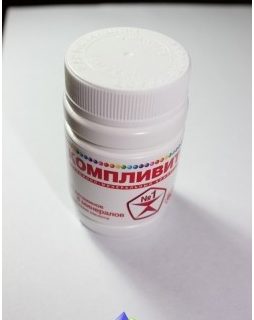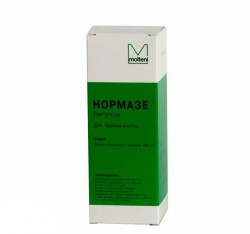The reason for writing this article was ordinary at first glance, the situation was collected: in kindergarten was collected from parents signature under consent to the vaccination Hiberix. Many signed. Was it worth painfully signature in the document?! Such a question should ask ourselves all parents careful about the health of their kids.
So, what vaccinations are required to make our children? From what and why we have the right to refuse to «calm» soul? And how to determine whether the vaccine will damage your baby? These are questions to which after reading the article must answer all.
National calendar vaccinations
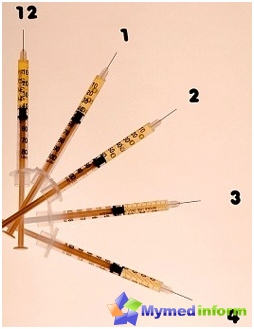
The calendar is an ordered list of terms and titles of vaccinations that need to be carried out in children and adults, taking into account the epidemiological situation in the country, as well as, respectively, the age distribution and severity of transferred diseases. Immediately I want to warn readers our site that for some regions of the Russian Federation there are amendments to the national calendar, given the features of the diseases of its inhabitants. Take the central region.
So, the baby was born. And immediately, for the first 48 hours life, he should make vaccination against hepatitis in. Just a few years ago, this vaccine was done with almost all newborn, with the exception, perhaps, deeply premature children and children who have obvious contraindications (about them a little later).
Now every mother (or in childbirth, or already gave birth) take written consent to the vaccination of her baby. Is it correct?
Option is the first - yes, because it is the mother who is responsible for the consequences of refusal or vaccination consent. But the second option - no, not correct, because the psyche of only gave birth is too labile, it is free to believe and suggestion. Moreover, to be honest, who before the signature in an accessible form and full, explained the need for these vaccinations, and also talked about possible reactions and complications? I have not seen such in general. Therefore, it can be consciously sign or a mother or mother, which is well understood in medicine. Yes, and they do not always make the right choice.
So, the first Council of Mama: Do not rush to sign documents (nor a refusal, or consent), sometimes you sign your baby sentence. If you doubt, ask questions to the doctor if something remains incomprehensible, ask. In no case are not guided by pity - as such a crumb also prick. Better to prick, make a little hurt now than then eliminate the consequences of such pity. Do everything thoughtful and reasonable to put a signature confident hand «per» or «against».
4-5 days - Or before discarding from the hospital, the baby makes the BCG or BCG-M. The difference of these vaccines in the dosage - letter «M» indicates that they took half of the simple BCG. This vaccine is alive, against tuberculosis. More precisely, immunity after it is produced to mycobacterium tuberculosis. This vaccination undergoes many changes for 5-6 months, after which the rutter is formed. Its value shows the presence of immunity from your baby. Believe that if the rings are less than 4 mm, then immunity is not stable. The essence of vaccinations lies in the fact that weakened mycobacteria of another class are introduced, and tuberculosis flows in very light, skin form. After that, the rutter is formed.
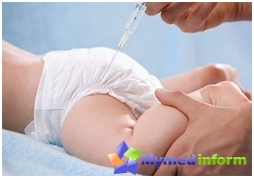
This is connected and the so-called «suppuration» At the place of vaccinations, which in no case cannot be touched, rinse, wash. It's better not to pay attention to it. Soaking baby, of course, you can. About contraindications for Vaccination BCG Talk a little later.
3 months Life - Vaccination against Coculus, diphtheria and tetanus (DC) + oral polio vaccine (OPV). Children in the testimony It is possible to use the ADS vaccine (without a pertussum vaccine) or ADS-M (fewer).
4.5 months life - DC, OPV and hepatitis in.
6 months life - DC, OPV and hepatitis in.
12 months Life - Vaccination against measles, rubella and epiparotitis (trivaccine or monovaccin).
18 months (1.5 years) - ACDS + OPV.
20 months - OPV one-time.
6 years - ADS-M + OPV + measles vaccine, rubella and epiparotitis.
7 years - BCG or BCG-M provided not infected tuberculosis.
14 years old - BCG, subject to not infected with tuberculosis. Next under the same conditions, the vaccination makes every 6-7 years.
Vaccination against hepatitis in spend every 10 years.
By order of 2007, flu vaccination is also included in the calendar.
True and false contraindications for the introduction of vaccines
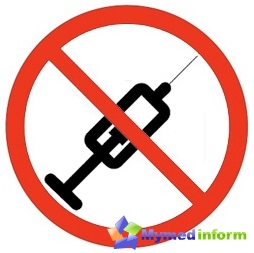
It is worth distinguish between two concepts: true and false contraindications. True contraindications are lifetimes, under which the introduction of the vaccine is absolutely contraindicated in any conditions. And false are temporary contraindications and as this factor eliminates this factor is quite possible to instill.
True contraindications. This is a rather small group of children, as a rule, having quite serious violations in a state of health.
Absolute contraindication for the introduction of all vaccines is a strong reaction or complication for previous administration. A significant increase in body temperature can be attributed to a strong reaction, infiltrate to 8 cm in diameter. This contraindication is due to the fact that the kids have a tendency to progress for vaccination reactions.
Absolute contraindication for the introduction of all living vaccines (BCG, BCG-M, OPV, against measles, rubella and vapor) is the presence of a child of primary or secondary immunodeficiency, malignant Tomducations, blood diseases. And also it is impossible to use live vaccines in pregnant women and people who are on immunosuppressive therapy (reception of hormones, cytostatics).
For the BCG vaccine and the BCG-M contraindications (in addition to the above) are: the weight of the child is less than 2500 g and the presence of a keloid scar after a previously introduced vaccine.
Children with progressive diseases of the central nervous system are exempt from the introduction of DCA vaccines (these may also be tumors, and exacerbating paralysis, and paresis), as well as children prone to sortsmiths (for epilepsy, for example). T.E. When the kid's convulsions do not depend on the degree of temperature increase. In this regard, it is possible to apply ADS and ADS-M.
Vaccine against measles, rubella and epipartitis are contraindicated in the presence of an allergic reaction to quail protein and aminoglycosides.
In the presence of allergies to bakery yeast contraindicated vaccination against hepatitis in.
Relative or false contraindications. These include contraindications that arose due to the suffering diseases and exacerbations of chronic. Here are the most frequent of them and the dates of the tap of vaccinations:
- ORVI, flu in easy severity - 2 weeks;
- ARVI, the flu high gravity - 3 weeks;
- ORVI heavy (with stenosis of larynx or obstructive bronchitis) - 4 weeks;
- Flu Heavy - 2-3 months;
- Hypecoxic flu in the introduction of immunoglobulin - for all living vaccines for 3 months;
- Adenoviral / Herpetic infections Easy - 1 month;
- adenoviral / herpetic infections with damage to the skin and mucous height - 2-3 months;
- adenoviral / herpetic (encephalitis, pneumonia, jade) heavy infections - 3-6 months;
- chicken pox, infectious mononucleosis Easy degree - 1-2 months;
- Windshore, infectious mononucleosis of moderate severity - 2-3 months;
- chickenpox, serious degree infectious mononcleosis - 3-6 months;
- Eastern infection is light - 2 weeks;
- Intestinal infection is medium and heavy - up to 4 months;
- Meningococcal infection - up to 12-18 months;
- Pneumonia is at least 2 months from the date of recovery;
- Glomerulonephritis - at least 2 years old resist;
- pyelonephritis - at least 3 months with a resistant remission with normal urine indicators;
- Light / medium / heavy dysentery - 2 weeks / 1 month / 3-6 months, respectively;
- chronic gastritis, Gastroduodenitis, gastroenterocolitis - at least 1.5 months with a resistant;
- Chronic respiratory diseases - by degree, but not less than 2 months with a resistant;
- Operational interventions - at least 1 month.
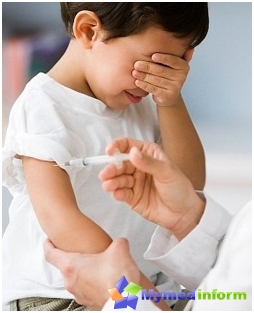
Children who most often arise complications
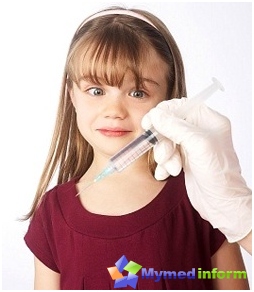
First, these are children with various allergic reactions and atopic dermatitis. In this regard, desensitizing funds are appointed to vaccination for 3 days: Claritin, Supratine, Tuese.
Secondly, these are children with any lesions of the CNS. And their complications appear more often in the form of cramps and epileptic seizures. In addition to the direction of the pediatrician, you need an inspection of a neuropathologist with a statement of health.
Thirdly, it is often a long-haired children.
For all children from risk groups, an individual vaccination calendar is selected, but general events are observed: the choice of the vaccination season (more often the warm season, when children are so ill); selection of the time of day (better vaccination to carry out in the morning); Do not vaccinate children enrolled in kindergarten less than 2 weeks ago.
Conclusion
The above duration of the removal from preventive vaccinations should be a key point to identify children in need of vaccination, but having contraindications. Thus, parents, knowing that their child has 2 weeks ago appeared on the lips herpes, should not give consent to vaccination.

Either this should be agreed directly with the attending physician if the risk of illness is above the risk of complications after vaccination. The same applies to children who, contrary to their disease, visit pre-school or school institutions. This is familiar to many - I saw little parents who, when a runny nose of their child appears, «Sitted» would with him to hospital. This means that the baby continues to attend the preschool institution, while the infection in the body persists, but the vaccination is still done, t.To. No diagnosis. And the result is sometimes not predictable.
Therefore, I do not recommend readers our site to hurry to give your consent, before appreciating the readiness of the child «to accept» immunization and respond to the vaccine adequately. If you still want to protect your baby, give up now, take the direction of vaccination from the garden, when the child will be healthy when the risk of complications or strong reactions will be minimal. Yes, and stress in your presence at the kid almost will not manifest.



